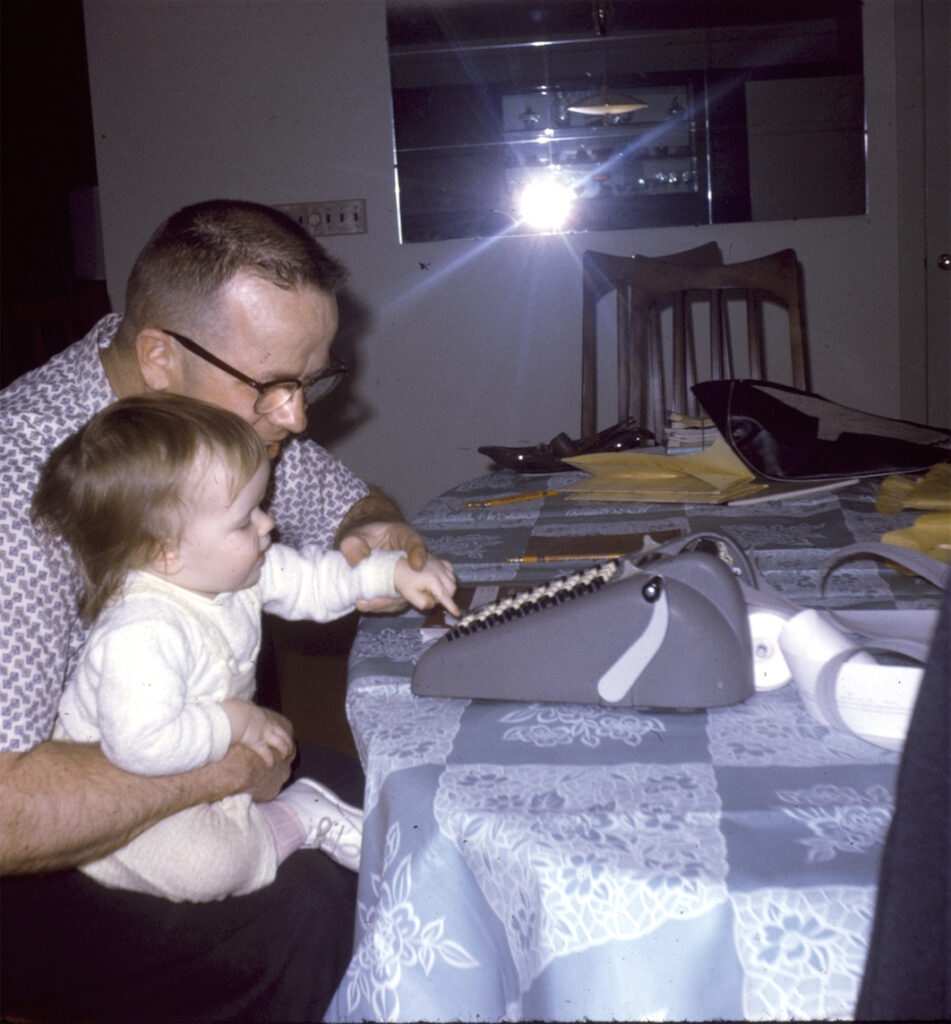My father, Harold, would have turned 100 years old today. He was born at home in Ellerslie, PEI, the fourth of five sons of Alvin and Gladys (MacNevin) Phillips. He was a hardworking, honest, reliable, clever man. He spent four years in the RCAF during the Second World War, then became a successful businessman and community volunteer.
The one-room Ellerslie school only offered classes up to grade eight, but some children moved to larger communities to continue their education. This wasn’t possible for my father as Alvin died when my father was only 13, so the boys all had to find work as soon as they could. My father moved to Summerside and worked at a large store owned by his uncle, but his real dream was to go to business college. His uncle promised that if he worked hard at the store, he would help my father with the tuition for business school. Knowing my father, he would have worked very hard, and was keen to attend school.
The Second World War interrupted those plans, and my father enlisted when he was 19. When he returned to civilian life, his uncle had kept his job open (as was the law, of course), but the offer to send him to business school was no longer there, for reasons I never learned. My father worked for his uncle for a few months until the opportunity to purchase his own business came up, and he and my mother, Vivian, moved back to the community where she was raised and started their general store.
Although my father was successful in many ways, he always regretted not having a more formal education. He spent 13 years on our regional school board, and probably because of his own experience, he was driven to improve school retention rates, which were pretty dismal when he joined the board in the early 1970s. Many students, especially young men, were leaving before high school graduation because they knew they were destined for lives of farming or fishing and thought there was no need for any more education. My father was proud of having been a part of establishing a new high school that offered both academic and trade courses under one roof, and retention rates quickly improved. He wanted young people to have all the opportunities that had not been available to him, and saw education as the key that opened all doors.
My father was able to move beyond any resentment he may have had towards his uncle and made a good and purposeful life for himself, and was also able to help others. To his great surprise and delight, my father was asked by Holland College to teach a business course on Lennox Island First Nation in the early 1980s. He taught a dozen students all he knew about running a small business, knowledge he had to gain on his own, and he was so proud to have something to offer. I was in high school when he was teaching, and remember him organising the graduation dinner for the course, taking care to ensure that the students knew how special they were.
My mother and I decided to honour my father’s legacy in education by establishing an endowed bursary in his name at Holland College for students from our area who will be studying business. The first award was given out last year, and it is thrilling to know that his hard work will ensure that others will be encouraged to follow their dreams. He died in 2008, and suffered with dementia for many years before his death. It has taken a long time for us to get past the heartbreak and struggle of his final years and see again how truly remarkable he was. Time heals.


